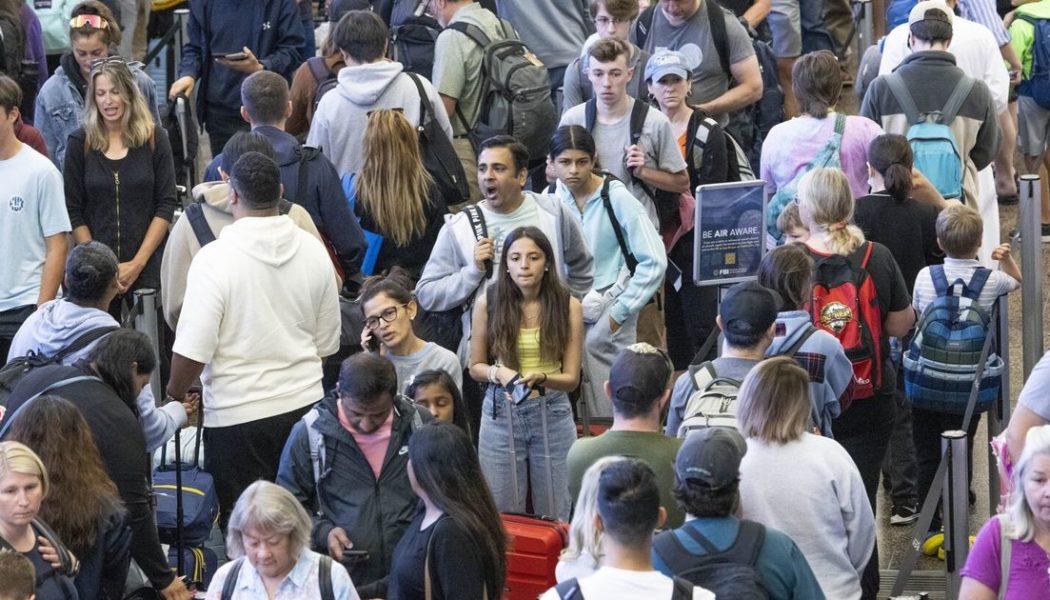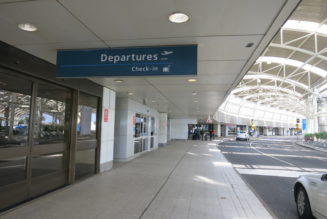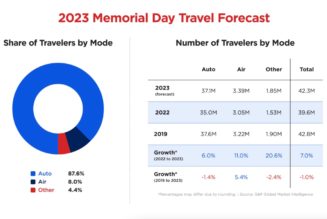
Travel Troubleshooter
Travel is officially back this summer — and along with it, all the high prices and headaches that make it unbearable.
“Travel is chaotic this summer,” says Sasha Gainullin, CEO of the travel insurance company battleface. “And travelers are looking for ways to handle the chaos.”
Fortunately, there are some new expert summer travel survival strategies that can help you get through it.
For example, battleface just teamed up with AirHelp, a claims management company for air travelers, to create a travel insurance plan that pays you for every flight delay. The new program, AirPayout, sends you $110 if your airline delays you for three hours or more, cancels your flight within a week of your departure or diverts your flight. That’s on top of any compensation your airline offers.
“Call it what you will — the post-COVID travel bump, revenge travel or the new normal — but it seems like everyone is traveling right now,” says Christina Tunnah, general manager of marketing and brands for World Nomads.
Travel insurance companies may be on to something. But this summer’s biggest pain points — crowds, delays and high prices — will require more than a good policy. I have some pro advice on handling these problems. And in a moment, I’ll give you a tip that no other travel columnist dares to suggest.
How to manage the summer crowds
When everyone wants to go to Ocean City, Md.; Galveston, Texas; or Catalina, Calif., at the same time, crowds are inevitable.
You can avoid the throngs of visitors by choosing a contrarian destination. Consider a place in Florida’s northwest Gulf Coast, such as Destin, Fort Walton Beach or Panama City, which saw record visitors during the pandemic. It has some of the prettiest beaches in the world, with white sand and turquoise water. But it’s also within driving distance of big cities such as Nashville, Tenn., and Atlanta. When the pandemic ended, people wanted to go farther — and the crowds thinned.
David Demarest, a spokesperson for The St. Joe Co., a land development company in Panama City Beach, Fla., says driving vacations are a great opportunity to avoid crowds and save money.
“With the growing uncertainties and expenses associated with air travel this year, maybe travelers should once again focus on destinations within driving distance,” he told me.
My favorite expert strategy for avoiding crowds is smart timing. Even on the busiest days during peak season, you can still find moments of serenity in the early morning. Try visiting the hotel breakfast buffet at 6:30 a.m., and you’ll find a cheerful staff eager to help you. At 10 a.m., not so much.
And that crowded beach is practically abandoned at sunrise, which is also one of the best times for a long walk.
What can you do about delays?
Delay rage is a thing this summer. But it doesn’t have to be your thing.
If you still haven’t booked your tickets for your summer vacation (you’re a little late, by the way), there are a few things you can do to make your trip less delay-prone.
First, you can easily find out if your desired flight is delay-prone. Some online travel agencies display that information next to the flight. If they don’t, just look up the flight number on FlightAware, which shows the average delay. You can find the historical actual departure and arrival times, as well as the flight duration, at the bottom of the screen. Compare those to the scheduled times and duration, displayed at the top, for that day’s flight.
As a general rule, the earlier you leave, the better. The first flight of the day is less likely to be delayed. Start a road trip at the crack of dawn and you’ll be at your destination before rush hour. If you’re not sure, you can always talk to a qualified travel consultant. I have a free guide on how to find the best travel adviser on my consumer advocacy site, Elliott.org.
Also, look for maximum flexibility, not just for flights, but also hotels and tours.
“Find a trusted partner with a flexible cancellation policy to allow for some added peace of mind,” advises Adam Lawless, a spokesperson for Viator. With all the summer delays, you don’t want to be locked into an appointment you can’t keep.
How about high prices?
Even though the price of air travel has fallen since late spring, it’s still high. Domestic airfares averaged $284 for the first half of the year, which is the highest in recent memory. Average daily room rates are up slightly from last year’s record levels ($156 per night). Bottom line: Travel is not cheap.
If you’re not sure if this is a good time to book, you can get some peace of mind by using CheapAir.com’s Price Drop Payback. It reimburses travelers up to $100 if the price of their ticket drops after their purchase. And this may be the summer to use it. “The later you can travel in the summer, the bigger the bargains,” says Jeff Klee, CEO of CheapAir.com.
Another problem is that people will spend lots of money on airfare and hotels and then try to pinch pennies on activities like tours and restaurant meals. But if you do that, what’s the point of traveling? A much better strategy is to find a more affordable destination where you can stretch your dollar.
It doesn’t even have to be in the United States. I’m in Thailand, where the exchange rate makes the entire country as affordable as it’s ever been. It is also shoulder season — technically, monsoon season — so many hotels have availability.
Bottom line: This summer is not the time to save money on travel unless you can get creative. Consider a less expensive destination.
My unconventional advice: Delay that trip!
I told you I had some unusual advice for you, and here it is: If you want to survive summer travel, don’t go now. Everyone else is trying to hit the beach, visit a national park or tour a popular museum. Your best travel strategy is avoidance.
I know, I know. A travel columnist telling you not to travel. But honestly, I’ve never seen it like this. If you can delay your trip until early September, you’ll avoid crowds, high prices and what Berkshire Hathaway Travel Protection calls “Airmageddon.”
You can thank me later.









